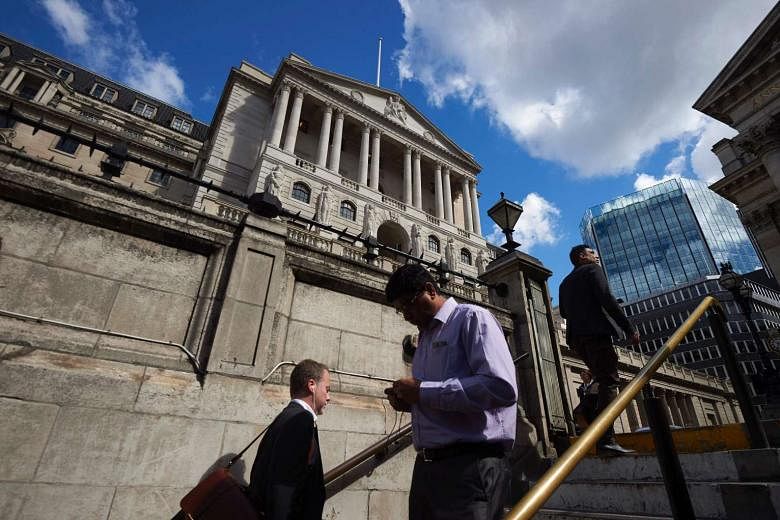WASHINGTON (AFP) - The uncertainty created by Britain's vote to leave the European Union will slow the global economy into next year, the International Monetary Fund predicted Tuesday (July 19).
Last month's populist victory in the British referendum has darkened the skies in that country and across the euro area, according to the global crisis lender, forcing it to cut April's growth forecasts and rattling what had already been a fragile recovery.
Britain's relations to the 28 member EU single market were thrown into confusion following the June 23 vote, raising the possibility of sudden, new trade barriers and at least initially causing a selloff in global financial markets.
Analysts have predicted this will weigh on consumption and investor confidence.
In an update to its April forecast, the IMF said global economic growth was likely to be 3.1 per cent this year and 3.4 per cent in 2017, a downward revision of 0.1 per cent for both years.
Brexit was liable to cost the British economy nearly a full percentage point of growth in 2017 as demand will likely be significantly lower than it would have been had the remain camp been victorious.
"Continuing uncertainty is likely to weigh on consumption and especially investment," the IMF said.
Nigeria, Africa's largest economy, saw unusually painful revisions as dropping oil prices have hurt oil revenues, power production and investor confidence. Its economy is now expected to contract by 1.8 per cent rather than grow by 2.3 per cent, a sharp revision that has followed the steep devaluation of the country's currency.
In a bright spot, stronger activity in the euro area has seen this year's growth forecast revised upward by 0.1 per cent to 1.6 per cent. But possible drops in consumer and business confidence as well as strain on banks means 2017 will likely see a slowdown after the Brexit referendum.
Brexit's consequences for the United States were likely to be "muted," with growth steady at 1.8 per cent this year and next, representing a downward revision of 0.2 per cent in 2016.
However, the IMF warned of possibly greater risks for global growth. Non-performing loans and the poor profitability of Greek, Italian and Portuguese banks as well as enduring market turbulence were among factors that "could have severe macroeconomic repercussions," according to the Fund.
While the short-term prospects for the Chinese economy were unchanged or even improved due to interventions by central authorities - driving this year's forecast up 0.1 to 6.6 per cent - the heavy reliance on credit to drive growth could create instability.
The recent appreciation of the yen is likely to counteract an announced two-year delay in hiking a consumption tax in Japan. This has slowed the forecast growth in that country's already anemic economy, with the IMF revising it downward to just 0.3 per cent, to be followed by a bare 0.1 per cent expansion in 2017.

